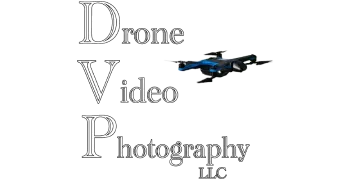BLOG

Drones - The surprising facts about what is "recreational" versus "commercial"
The Intricacies of FAA Drone Part 107: Paid or Unpaid, the Rules Still Apply
The world of drones is buzzing with excitement and extensive possibilities. Whether you're surveilling wildlife or capturing breathtaking landscapes, drones have transformed the ways we view and interact with our world. However, along with the thrill comes responsibility, specifically the FAA Drone Part 107 rule. Quite simply, this rule applies to any drone activities that are not allotted for recreational pursuits, regardless of whether you're earning money from the operations or not.
Indeed, this implies that even as a hobbyist, if you plan on using your drone for anything beyond mere fun – think educational research or cloud-seeding projects – you fall within the ambit of these regulations. And here's the catch - it doesn't matter if you're not making a single dime from it.
Interesting, right? But why would the FAA place such a rule? Let's go a bit into the backstory.
These regulations were born from critical safety concerns. With approximately 1.7 million drones registered in the United States alone and a plethora of diverse drone applications, it's crucial to ensure air safety and privacy rights. Consider this: Would you feel comfortable if a neighbor's drone, hovering under the guise of an 'unpaid service', invaded your privacy by capturing pictures of your private property?
To prevent such scenarios and maintain the thin line between innovation and intrusion, boundaries are essential. Regulations like FAA Drone Part 107 are those boundaries. "But wouldn't this stifle creativity and the free spirit of exploration?" you might ask. This brings us to our next point – the importance of responsible droning.
Contrary to popular belief, these regulations don't serve to suppress drone operations. Instead, they seek to ensure that the technological liberty accorded by drones doesn't morph into liberty taken too far. Peter van Blyenburgh, a renowned drone industry expert, opines, "Regulations are not shackles, but rather the required check-system to prevent misuse of drone operations, whether commercial or not."
This is where Drone Video Photography LLC, steps in. We navigate you through the intricate FAA regulations, including Drone Part 107, ensuring the drone service you have hired conforms with the rules while providing you an exceptional drone experience.
Despite the rules' benefits, a prevalent counterargument is the subjectivity of the terms 'recreational' and 'non-recreational'. A drone hobbyist photographing wildlife, for instance, could argue that it's undertaken purely for 'recreation'. But, given that the images could potentially be sold or used for educational purposes, does this activity still fall under 'recreation'? Interesting food for thought, don't you think?
Such complexities inherent in drone regulations underscore the importance of professional guidance. Drone Video Photography LLC stands as that guiding force, equipping you with the right knowledge and procedural know-how to hire drone services responsibly and legally.
So, as we ride the wave of drone technology advancements, it's imperative to bear in mind the rules of the airspace we share. The FAA Drone Part 107 isn't a choice; it's a necessary step towards responsible and sustainable drone usage, irrespective of whether it's a paid engagement or an unpaid commitment.

